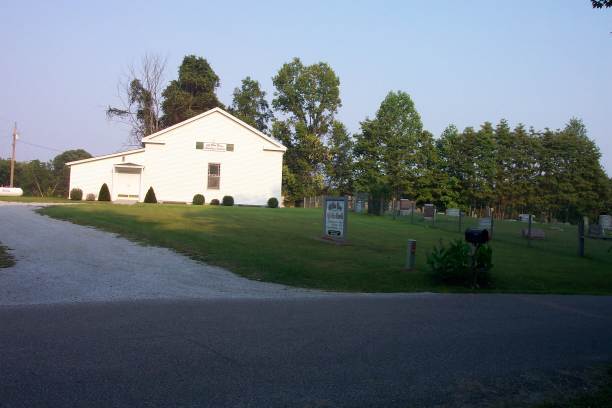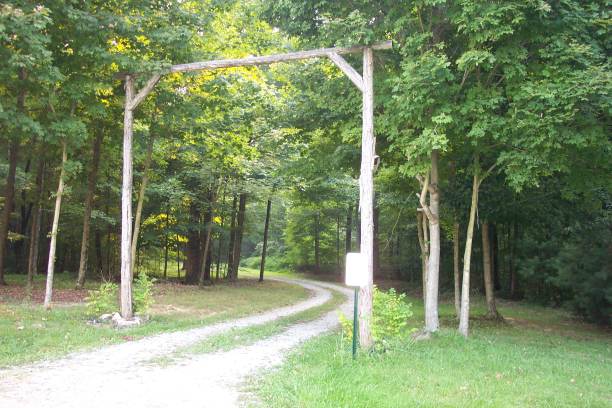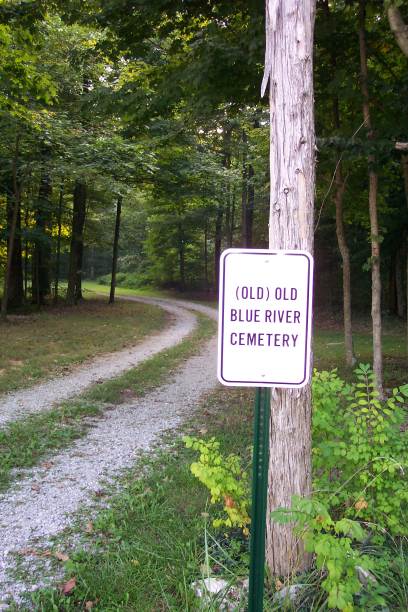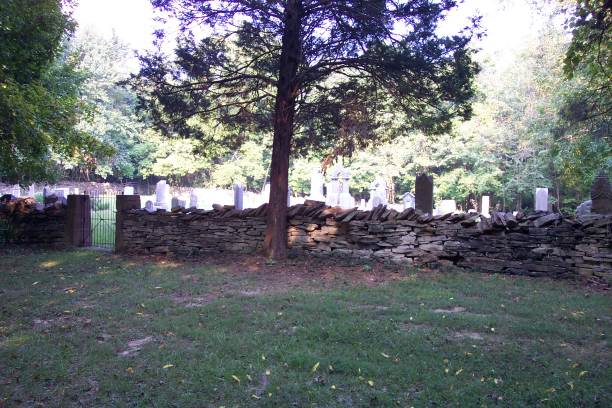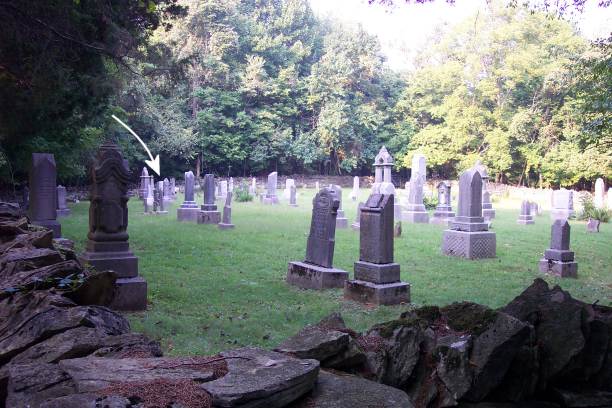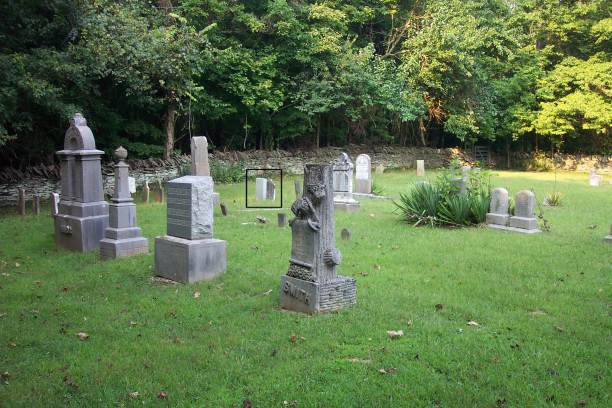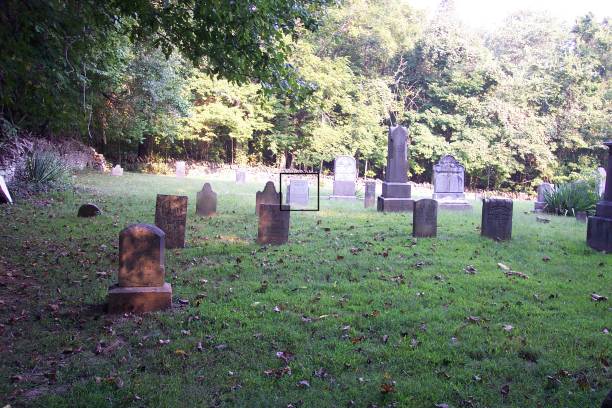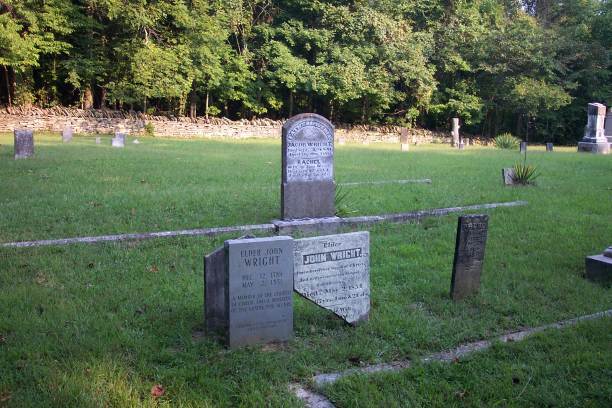Jacob Wright
1809-1881
Biographical Sketch On The Life Of Jacob Wright
Although the son of one of the pioneers sketched in this volume, Elder Jacob Wright is entitled to a place among the first advocates of the Reformation in Indiana. He was born October the 9th, 1809, near Charlestown, Clarke's Grant, Indiana Territory.
Early in the Spring of 1810, his father, John Wright, removed to a point on Blue River four miles south of Salem, in the present county of Washington, though then within the limits of Harrison. He recollects distinctly when Salem was laid out by his father and the other county commissioners. Probably it received its name "city of peace" from Elder John Wright, the great advocate of peace among all the children of God. Among his earliest recollections are the thrilling incidents that occurred while his parents and their neighbors were shut up in forts to escape the tomahawks of the savages.
Owing, therefore, to the circumstances surrounding him, in early life, his education was only on a par with that of other pioneers who grew up in the Western wilds. His father, realizing in his ministry the want of mental culture, did all in his power to improve the minds of his sons; but Jacob, with the rest, acquired only a superficial knowledge of the lower branches of an English education. His spiritual training was carefully superintended, especially by his pious mother, whose holy life was a potent argument in favor of Christianity. But being of a lively and rather forward disposition, no deep impressions of a religious character seem to have been made on his mind in childhood or youth.
At a very early age he was married to Miss Sarah Sheets, after which event he put away many youthful follies and became more sober-minded. From this state of mind the transition was easy and rapid to a state of religious anxiety which induced him to attend the meetings and listen to the teachings of the several denominations. In so doing he well nigh made shipwreck of his faith on the fatal rock of doctrinal diversity.
He had been taught that it was the part of charity to believe all men sincere in their religious views and candid in the statement of their respective experiences. Therefore his confidence in religion was severely shaken when he heard men earnestly endeavoring to inculcate doctrines as opposite as the poles, and all, at the same time, claiming to be directly called and specially qualified by the Holy Spirit. He could not believe that the Spirit of God inspired such contradictory doctrines; therefore he concluded that those who honestly professed to have been specially called and qualified, were the victims of a delusion; and if they were, so, perhaps, were all believers.
When witnesses in earthly courts have already contradicted each other times without number, their testimony is good for nothing when they chance to agree upon a single point. So when these opposing sectaries agreed in witnessing the blessing to be obtained at the "anxious seat," Elder Wright believed them not, and consequently resisted all the tearful entreaties of his friends, who would fain have seen him at that place of prayer. The religious leaders in those days did not seem to think that the sinner's path of duty terminated at the "mourner's bench;" but at that point it became so obscure that it could scarcely be discerned even by the spiritualized eye of the called-and-sent preacher. In allusion to this fact Elder Wright is wont to say, in his plain style: "The preachers wanted us sinners to do something in order to be saved; but neither they nor we could ever clearly understand what that 'something' was." But for these difficulties he would, no doubt, have obeyed the gospel long before he did; and it is probable that he never would have obeyed it had not those dark places been illuminated by the dawning light of the Reformation.
Finally, however, he heard some enlightened preacher observe that "man's duty is simple and may be narrowed down to two points, faith and obedience. This remark directed his mind to something tangible; and it was not long until both he and his wife were immersed, in humble submission to the will of the Lord.
They united at once with the congregation of Free-will Baptists at Blue River, which church had been organized by his father on the apostolic foundation, and which, with all the surrounding Baptist churches, came into the Reformation at the time of the great union effected soon after between them and the Reformed Silver Creek Association.
He immediately began to take part in the meetings for public worship; and in a short time it was whispered about that he ought to preach the gospel. But to this he was firmly opposed; for his father's experience had taught him that the minister's life is one of severe trial.
While this matter was pending, he met with a severe affliction in the loss of his wife. She died of consumption in the Summer of 1832.
Humbled by this sad dispensation of Providence, and seeing the fields on every hand "ripe for the harvest," he yielded to the importunities of his friends, and resolved to devote his life to the service of the Lord. On the third Sunday in August, 1832, he was ordained to the work of the ministry.
He was at that time in feeble health, and was thought to he in the first stage of consumption; but he continued to preach the word with all the energy he could command, his labors being crowned with some success, and his health being finally restored.
On the last day of March, 1833, he was married the second time, to Rachel Denny, who has been, and still is, a faithful helpmeet in the gospel.
In May, 1834, he removed to Martinsburg, where he entered into the cabinet business His cabinet shop was also, per necessity, his theological seminary. He used to keep a Bible on his work-bench; and while resting be would read a few verses on which to reflect while he plied his tools. In this way he acquired much of that thorough knowledge of the Scriptures, for which he is now noted.
While prosecuting his worldly business he did not neglect the "great salvation." From the very first, his Sundays were regularly employed in the Master's service; and each succeeding year the area of his operations was enlarged, his influence increasing in a direct ratio.
During a portion of the year 1838, he preached monthly for the congregation at Coffee Creek; and through his efficient labors the church increased from forty to over one hundred members. In the year 1839 he immersed about five hundred persons, and about four hundred the year following. Not all of these, however, were enlisted under his preaching alone; for he travelled much in company with his father, Jesse Mavity, Mordecai Cole, and the Littells, John T. and Absalom.
Among other important achievements of the year 1839 was the organization of the churches at Driftwood and Brownstown, churches which still continue to enlarge their borders, and through the instrumentality of which, many a "mouldering heap," in the cemeteries hard by, will give up its inmate at the first resurrection.
These years, from 1838 to 1840, were the most successful of his whole ministry.
At the close of this period his usefulness as a preacher was seriously impaired, and for a while entirely destroyed, by his becoming entangled in the affairs of this life. By close economy and hard labor in his cabinet shop he soon acquired considerable means, which he invested in a steam flouring mill. In this enterprise he had a partner to whom he entrusted the management of the business, while he, for the most part, gave himself to the word. Under this arrangement the firm became involved in debts; and the great financial crisis of 1840 coming upon them, in that situation, rendered them completely bankrupt.
Up to that time his preaching had been almost gratuitous, having received only about fifty dollars during the last six years of his ministry. He, therefore, had no reason to look in that direction for pecuniary aid.
Under these circumstances, and in view of the commandment to "provide things honest in the sight of all men," he determined to quit preaching, and labor with his hands, at least until he could pay off all his debts. Accordingly he went to work as a house-carpenter, and by extraordinary exertions was fast liquidating the claims against him.
But the brethren, especially those of Jackson county, were unwilling for him to abandon the evangelical field. They held that such a course on his part would either produce the impression that his faith had been shaken, or reflect upon his brethren for not giving a more liberal support to one who had made so many sacrifices and manifested so much zeal in the work. Therefore the churches at Driftwood, Brownstown, Pea Ridge, and Indiana Creek, met "in co-operation," and agreed that if he would resume the preaching of the word, as evangelist of Jackson county, they would remunerate him sufficiently to enable him to continue the payment of his debts. To this agreement he became a party; and since that time, October, 1841, he has been (save one year) continually before the public as a minister of the gospel.
From his journal of proceedings for the year 1842 it is ascertained that he preached for the four churches above-named, and also at Friendship, Leesville, and Leatherwood, in Lawrence; Coffee Creek and Paris, in Jennings; Sand Creek and Columbus, in Bartholomew; Harrodsburgh, in Monroe; and Canton, in Washington county. The record also reveals the fact that during the year two hundred and seventy-eight persons were added to these several churches.
He continued his labors in Jackson until the Fall of 1844, during which time the disciples in that county were greatly multiplied. At other points also he held important meetings, among which was one at Mill Creek, in Washington county, where fifty-five were added under his preaching alone.
His health failing in the Fall of 1844, he removed to Salem, where he was employed during the year 1845 as a clerk in the dry-goods establishment of J. B. Berkey.
When he entered the ministry the second time in 1841, he determined to seek some further scholastic attainments, at least to acquire the art of using with propriety the English language. Therefore when he engaged to preach for the churches in Jackson county, he also made arrangements to spend a portion of his time in a school taught by a brother Richard Fisher. His main study was Kirkham's Grammar, with which he became quite familiar. He also acquired some further knowledge of the subject by attending the lectures of Dr. H. T. N. Benedict, of Bloomington, who was traversing the country as a teacher of the English language.
Subsequently he fell in with a brother Newton Short, by whom he was induced to begin the study of Greek. In order to encourage him, his patron gave him a Greek Testament, grammar, and lexicon, and also taught him the alphabet. After this humble beginning he continued for two or three years to wrestle with the declension of nouns and adjectives, and to grope his way slowly through the labyrinth of the verb. He obtained all the information he could from every scholar he chanced to meet; and aside from this he had no assistance until he removed to Salem in 1844. There he placed himself for a few months under the instruction of Prof. John I. Morrison, formerly of the State University; and by this means he was enabled to read the original text with tolerable proficiency.
Only a few years ago he began the study of Hebrew, which subject, like the Greek, has been pursued under many difficulties and mainly without a master. He does not profess to be proficient in either language, but he has learned a sufficiency of both to be able by means of his lexicons to determine in most cases the true meaning of the Scriptures. Thus it appears that he has pursued an irregular course, not thorough by any means, but surpassing in length even the curriculum of the German Universities!
On the first of January, 1846, he resumed his labors in the ministry, engaging to preach for the churches at Greensburg, Milford, Clifty, and Clarksburg, in Decatur county. These congregations he found in a weak, lukewarm condition; but at the end of two years he left them zealous, prosperous, and happy. While employed in Decatur he also reached over into Franklin county, where he organized a church of some forty members. This was in a community previously under the influence of the United Brethren, several of whom entered into the new organization.
In the Spring of 1848 he commenced preaching monthly for the churches at Salem, and New Washington, Clarke county, reserving the remainder of his time for holding protracted meetings at various points. For the space of three years he successfully served the church at New Washington. With the exception of one year he has preached one-fourth of his time at Salem since 1848. During this long period the church has passed through many vicissitudes, has experienced many expansions and contractions; but it still listens with unabated interest to the instructions of its long-tried pastor.
In March, 1851, he held a meeting, in New Albany, which resulted in several additions, and gave such satisfaction to the congregation that they employed him to visit them once a month for one year. During the next year he preached for them three-fourths of his time, and half his time during the year following. In the three years about one hundred and twenty-five were added to the congregation, which was otherwise greatly strengthened.
In the meantime he also organized a new church at Georgia, on the Ohio and Mississippi Railroad. This was composed largely of those who had formerly been Baptists.
During the years 1855-56 he served the churches at Milroy, in Rush, and Clifty, in Decatur county.
In November, 1858, he returned to his old field of labor at Driftwood, where he has since continued to preach once a month Through his zealous ministry nearly the whole community have been converted to the faith of the gospel.
About this time a rather remarkable meeting took place at Courtland, Jackson county. The Methodists, Baptists, and Disciples of that locality had united their means and erected a union meeting-house. All parties claiming a share in the dedication, Elder Wright was invited to represent the Christian element on that occasion. Arriving at the appointed time, and finding that the building would not be completed for several days, he determined to have a few valedictory exercises in the old house of worship. He accordingly delivered four discourses on the subject of Christian Union, at the conclusion of which one of the class-leaders arose and expressed his determination to embrace the Reformation. He paused long enough, however, to deliver a powerful exhortation to the members of his class, about twenty of whom, all but one or two, took their stand with him on the Bible alone. Thus, while the workmen were finishing the union house, Elder Wright, as a workman that needeth not to be ashamed, was preparing a united people to occupy it! Through the increased moral power resulting from this more perfect union, not less than forty or fifty others were brought into the heavenly family before the close of the meeting.
But it is not designed to enumerate even a tithe of the meetings which he has held with signal advantage to the cause of reform; and perhaps those already referred to are sufficient to illustrate, with justice to himself, the manner in which he has been employed, and the success that has attended his efforts for the last thirty years. A line indicating all his travels would pass through, at least, the counties of Decatur, Rush, Franklin, Bartholomew, Jennings, Johnson, Morgan, Monroe, Owen, Lawrence, Jackson, Martin, Washington, Jefferson, Floyd, Greene, Davis, Sullivan, Clark, Scott, Orange, and Harrison. Indeed, his field has embraced almost the whole of southern or southeastern Indiana, which district he has traversed again and again; for it has been his custom not only to plant, but also to revisit and confirm. He has organized many new churches, set up many altars that had fallen down, and, from the data at hand, the number of his proselytes cannot be much less than five thousand.
But Elder Wright has rendered important services in another department. He is emphatically "His disputer",if not "of this world," at least of the State of Indiana. It is as a debater that he has especially distinguished himself, though he was a weak opponent in the beginning. In a brief sketch like this, his numerous discussions cannot be dwelt upon; but justice demands that they shall, at least, be enumerated as follows:
1. His first was with a Methodist preacher by the name of John Bailes. It occurred at Martinsburg, about the year 1835.
2. His next debate, which was on slavery, also took place at Martinsburg, in 1836. His opponent was one Dr. Suggs, an Englishman, who is said to have had a liberal share of the braggart spirit for which his countrymen are remarkable. In this respect Elder Wright was also fully up to the American standard; and conscious of Yankee superiority and the justice of his cause, he accepted the disadvantage of affirming a negative, viz., that "American slavery is not according to the revealed will of God." This he was compelled to do, or be reproached with "backing out;" for the Doctor, with genuine English obstinacy, insisted upon the proposition in that form as a sine qua non. The moderators decided in favor of freedom.
3. At the same place and within the same year, he had a sharp engagement with a Mormon apostle, by the name of Emmet.
4. His next collision with one of the contrary part was at Brownstown, Jackson county, in 1839. It was an insignificant, extempore affair, in which he was opposed by the Rev. Philip May, of the M. E. Church.
5. This was followed by a regular discussion with a Methodist preacher by the name of Walker. The subjects discussed were, "The Influence of the Holy Spirit in Conversion and Sanctification," "Infant Baptism," and "Immersion." The debate began at Leesville, Lawrence county, August 1st, 1842, and continued three days. Before leaving the ground, Elder Wright immersed twenty-two; and before the approach of Winter he immersed more than one hundred and fifty in that immediate vicinity.
6th. On the 27th of June, 1843, he met Erasmus Manford, the Universalist editor, in a discussion which took place at Columbus. On this occasion, his antagonist had the advantage of him in education and experience; and it is the part of candor to express the opinion that the result was against him.
7. In the Spring of 1846, and near Clarksburg, Decatur county, he had a sharp but irregular contest with the Rev. Williamson Terrell, a Methodist itinerant. The substance of this debate, with the causes that led to it, has since been published by Elder Wright, in a pamphlet of sixty-six pages.
8. In October, 1848, he debated five days with Mr. Foster, (Universalist,) at New Washington, Clark county. This time he was more successful than in his former discussion of' Universalism. At the close he immersed about fifty persons; and it is said that "the final holiness and happiness of all mankind" was not again preached in that place for several years.
9. His ninth engagement was at Salem, in 1850, with a travelling phrenologist, who, in harmony with that whole race, was inculcating infidel sentiments.
10. From the 2d to the 10th of August, 1859, he debated, at Palmyra, with Dr. E. E. Rose, (Methodist,) on the following ten propositions :
First. Does the Holy Spirit ever operate, in the conviction, conversion, or sanctification of a person, apart from the revealed or written word of God? Affirmative, Rose
Second. Did the baptism of the Holy Spirit cease with the death of the apostles? Affirmative, Wright.
Third. Has the Church been one and the same under both the Old and New Testaments, and children of believing parents entitled to membership and baptism therein? Affirmative, Rose.
Fourth. Is immersion the one only apostolic baptism?Affirmative, Wright.
Fifth. Is sprinkling or pouring apostolic baptism? Affirmative, Rose.
Sixth. Is immersion a necessary condition of justification or pardon? Affirmative, Wright.
Seventh. Is the Methodist Episcopal Church, as such, a part of the Church of Christ? Affirmative, Rose.
Eighth. Is the Church of Christ, which is frequently called "Campbellite," in its organization and form of government, the Church of Christ? Affirmative, Wright.
Ninth. No church or council has a right to make a discipline or creed for the government of the Church of Christ. Affirmative, Wright.
Tenth. Is it the will of God that all Christians should be visibly united in one body? Affirmative, Wright.
11. In 1860 he again debated with Dr. Rose, at Worthington, Greene county. The propositions were almost the very same.
12. In November of the same year he had a discussion with Nathan Hornaday, at North Salem, Hendricks county, on the following propositions:
First. Has the kingdom of God, spoken of by Daniel, ii. 44, been set up or organized? Affirmative, Wright.
Second. Does the soul of man survive the death of the body, and remain conscious after the death of the body? Affirmative, Wright.
Third. Do the Scriptures teach that the "everlasting punishment" of the finally impenitent will be utter extinction? Affirmative, Hornaday.
13. His last public debate, in which he was opposed by Rev. T. S. Brooks, (Methodist,) began August 1st, 1861, and continued seven days.
Thus ends the long chapter of his public discussions, which, in connection with what precedes it, will exhibit to the reader the part which Elder Wright has performed in the current Reformation. For thirty years he has endured "hardness as a good soldier of Jesus Christ;" and, through the kindness of the Heavenly Father, he still stands upon the walls of Zion, clad in the full armor of God, and brandishing with a strong arm "the sword of the Spirit."
________________
Elder Wright is a small, sinewy man, black-haired, black-eyed, and of a rubicund complexion. His form, his features, his dress, his gait, every thing about him indicates that he is, in a good sense, a busy-body, a man of deeds, as well as pretensions not a few. He is never weary in well doing, and whatever his hands find to do he does with his might.
His mind is well-balanced and well-informed, especially upon theological subjects. He sees a point readily and clearly, and reasons forcibly from cause to effect. In phrenological terms firmness is large, combativeness larger, self-esteem largest.
He is rather original and profound in his mental operations, hence the fact that he has preached for the congregation at Salem during the past sixteen years, without exhausting his intellectual resources. He is far from belonging to that class of preachers who deliver a few discourses with great effect, and after that have no more that they can do.
His manner of preaching is plain, straightforward, energetic, authoritative. He speaks with tolerable fluency, yet he is not rich in language; and his gestures are impressive rather than pleasing. He deals exclusively in facts, and carries his point by sheer force of logic. Though not harsh and repulsive in his elocution, yet he is destitute of pathos, and ordinarily incapable of delivering a touching exhortation.
In debate he is prompt, discerning, perfectly candid, and mild even to a fault; therefore he contends more successfully against an able opponent than against a deceitful quibbler. From the number of public discussions in which he has been engaged, it would be inferred that he is not only combative, but habitually aggressive. Such, however, is not the case; for in the most, if not in all of his regular debates, he has been the challenged party.
In the world as in his profession, he shows "uncorruptness, gravity, sincerity." Though in every respect a positive man, yet he is humble, frank, affable, and therefore popular, especially among the common people. Wherever he has gone preaching he has a host of friends, with whom his example avails not less than his precepts.
Poor in this world's goods, yet rejoicing in prospect of a heavenly inheritance, he still proclaims the glad tidings of salvation, resolved to devote the remainder of his days to the advocacy of the principles for which he has so long plead, and which he is fully persuaded will eventually prevail over the whole earth.
-Biographical Sketches of Pioneer Preachers Of Indiana, Madison Evans, Page 349-362.
![]()
Directions To The Grave Of Jacob Wright
Jacob Wright is buried in the old Blue River Christian Cemetery south of Salem, Indiana.
From Louisville, Kentucky: Head north on I-65 to Exit 19, Hwy. 160 and turn left (west). Head toward Salem. Hwy 160 will dead into Hwy. 60 (Jackson St.) Turn right on Jackson St. Turn left on S. Main St. (Hwy. 135) and head south of town. About five miles south of town turn left on E. Rudder Rd. Go .6 miles and turn right on S. Blue River Church Road. Go 1.1 miles and the church and NEW cemetery is on the left. NOTE: Wright is NOT buried here. Across the street from the church building is a little road heading into the woods. Follow the road to a gate. Open the gate and go through. Head down the old road to a barn on your left. Then bear to the right and head down a steep hill and back up on the other side. When you get to the cemetery you will be about 1/2 mile from the road. This is the old cemetery where the Wrights are buried. This is the old cemetery where the Wrights are buried. Go through the gate and head to the far left side of the cemetery to find the burial plots of the Wright family.
From Indianapolis: Head south on I-65 to Exit 29b (Hwy. 56) in Scottsburg. Head west toward Salem. Travel on Hwy. 56 into Salem. Turn left on N. Main St. Head through downtown and continue south on S. Main St. out of town. About five miles south of town turn left on E. Rudder Rd. Go .6 miles and turn right on S. Blue River Church Road. Go 1.1 miles and the church and NEW cemetery is on the left. NOTE: Wright is NOT buried here. Across the street from the church building is a little road heading into the woods. Follow the road to a gate. Open the gate and go through. Head down the old road to a barn on your left. Then bear to the right and head down a steep hill and back up on the other side. When you get to the cemetery you will be about 1/2 mile from the road. This is the old cemetery where the Wrights are buried. Go through the gate and head to the far left side of the cemetery to find the burial plots of the Wright family.
GPS Coordinates of (Old) Old Blue River Cemetery
38°32'54.2"N 86°05'02.7"W
or D.d. 38.548375,-86.084069
Father And Mother
Jacob Wright
Died Sept. 5, 1881
Ages 71y. 11m. 5das.
_______
Rachel
Wife Of Jacob Wright
Died Sept. 12, 1864.
Aged 50 y. 5m. 14d.
![]()

